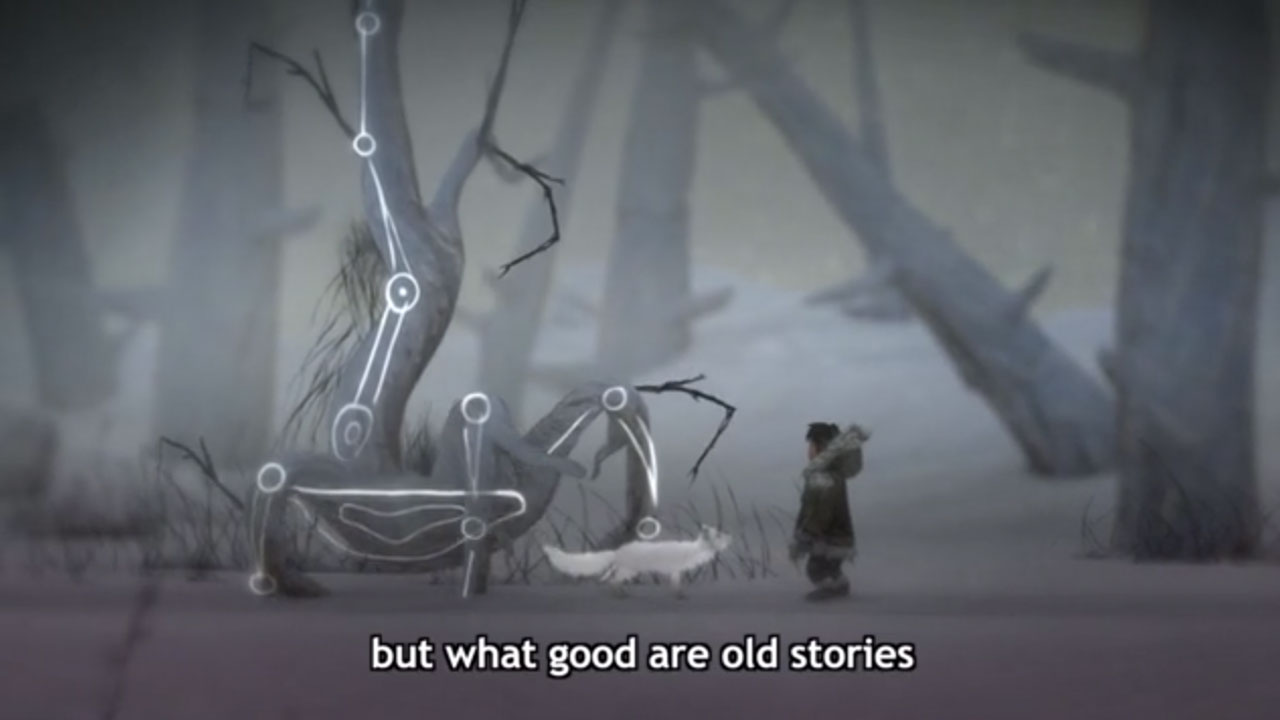Never Alone was produced as a kind of interactive public service announcement and fundraiser by Anchorage, Alaska’s Cook Inlet Tribal Council. The video game, based on a traditional Iñupiat tale called “Kunuuksaayuka,” stars a young Iñupiat girl who must overcome challenges to advance through the story of her culture, and to save her people from a blizzard set to destroy them all.
Global Voices Online spoke to the team behind the game about why they decided to use the video game format to encourage young people to engage with their cultural history:
In the modern era, there has been increasing concern that the rapidly changing, highly complex and digitally infused nature of life in the 21st Century has resulted in youth becoming increasingly disconnected from these classic stories and the wisdom of their elders. Those voicing this concern often point to the rapid growth of computer and video games as one of the culprits of this phenomenon.
Despite their ubiquity among youth, digital games are a medium that is largely alien to most elders, creating a concern that the more time youth spend playing these games, the less time they are connecting with their history, culture and values. This is especially true since the depiction of minorities, indigenous peoples and other under-represented communities in popular commercial games is often caricatured, appropriated or inaccurate.
Unlike the transition from oral to written stories, digital games represent a fundamentally different and new form of storytelling. Digital games are interactive, participatory and player-driven. They enable players to step into different roles, confront complex problems, make meaningful choices and explore consequences of various choices and strategies. They are active, not passive. Well-designed games offer a delicate balance of challenge and reward that drives deep levels of engagement, enabling players to advance at their own pace, acquire critical knowledge, iterate based on feedback and use this knowledge to accomplish objectives for which they are invested.
Sales of the game will raise money for the Cook Inlet Tribal Council, which is a globally active organization, to provide more services to the native peoples of North America.
The team added that their decision to make the game’s protagonist a girl came from their perception that women are underrepresented in games, and that many team members have daughters, for whom they wanted “to create an inspirational role model that could show girls that they can succeed at anything they put their mind to.”


